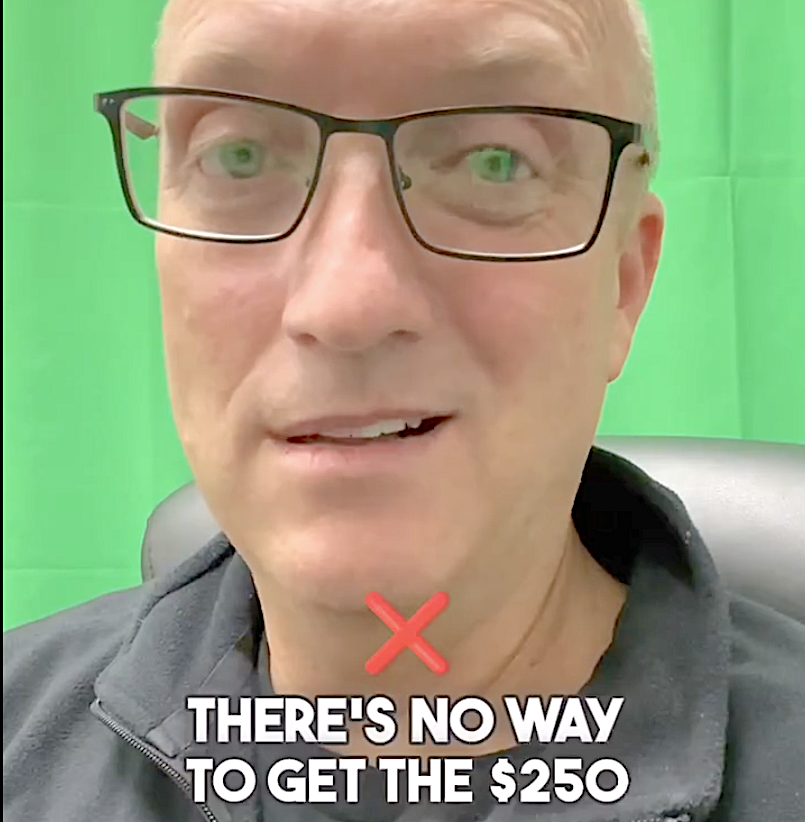‘So many warning signs’: Local car buyer explains how he’s one of many scammed while buying cars online

QUINCY — Jeremy Farlow simply wanted to buy a vehicle for his daughter.
He lost $250 to a scam on Facebook … and a little pride as well.
“I’m super embarrassed,” Farlow said. “So many warning signs.”
The Better Business Bureau said the number of virtual vehicle vendor scam reports increased in 2023 in a report released Thursday. Fraudsters targeted high-end classic car buyers and exploited vehicle history reports to steal money and information.
Reports to the BBB show scammers have listed non-existent vehicles of all kinds on real online marketplaces since the COVID-19 pandemic. More recent reports show scammers are increasingly turning to fake websites modeled after licensed sellers, using stolen photos, contact information and even vehicle identification numbers to fool consumers.
Count Farlow among one of those fooled.
Farlow found earlier this year a 2012 Honda Accord on Facebook Marketplace with 138,000 miles on it with a $2,500 asking price. He thought the price was a little low but thought the seller just wanted to get rid of it. When he reached out to the seller on a Monday, the seller replied he wouldn’t be back in town until Sunday.
“I’m thinking, ‘What a stupid time to put your car on Facebook Marketplace if you’re going to be out of town,'” Farlow said. “That was the first red flag.”
The seller asked for a 10 percent deposit. Farlow figured the car would sell quickly, so he sent $250 through an online banking service.
“It wasn’t like I was getting a Lamborghini for $5,000,” he said.
Farlow later asked questions about rust on the frame because the car was more than 10 years old, but he said the seller wouldn’t answer them.
“Now I’m up to two red flags,” he said.
Since the seller was going to be out of town, he then offered to have a friend bring the car to Farlow so he could pay for it. Then he asked for Farlow to send him money through Zelle, but Farlow countered by saying he would pay using PayPal.
“He gave me an email address to send it to,” Farlow said. “But the name on the email didn’t match the person’s name who was messaging me. That was red flag number three, but I justified it again, thinking that he didn’t have PayPal and so he asked a friend who did.”
The scammer then said he would have another person drive the car to Farlow’s business office (he runs a local real estate agency). He asked for $100 for gas because he claimed the car had no gas in it.
“I’m thinking, Dude, this is right here in town. You don’t need $100. It should take like five bucks to get across town,” Farlow said.
It was at that point when Farlow knew he had been fooled.
“I wrote back, ‘Congratulations. You got me. I hope it was worth it, and I hope this bothers you for the rest of your life.’”
The Better Business Bureau examined the patterns of reports, reviews the amount of money lost and learns from those caught up in the scams to protect the public through education in its report, “Virtual vehicle vendor scams and related fraud persist post-pandemic.”
Among the findings:
- Online vehicle vendor scam reports to BBB Scam Tracker declined in 2022 but increased to new highs in 2023.
- Buyers 45 and older accounted for more than three-quarters of all reports on virtual vehicle vendor scams filed with BBB Scam Tracker.
- Scammers increasingly rely on fake websites, often stealing pictures and listing information from licensed and legitimate sellers.
- Classic car buyers were targeted with low prices and promises to deliver rare cars across the country.
- Fake vehicle history reports have risen during the last three years. While median losses are smaller, consumers reported personal data theft as a part of these scams.
Don O’Brien, regional director for the Quincy Better Business Bureau, says more than cars are sold fraudulently online.
“We’ve had trucks, farm implements, boats, RVs,” he said. “You name it, they will try to scam people by putting attractive prices on those vehicles.”
The BBB offers these tips for people looking to buy a car online:
- Do not purchase a vehicle report on your own vehicle for an interested buyer.
- View a vehicle in-person if possible or send someone you trust.
- Be wary of too-good-to-be-true prices.
- Opt for vehicle pickup over delivery whenever possible.
- Resist high-pressure sales tactics urging quick action.
- Use only approved Vehicle Identification Number lookup websites.
“You just really need to have special caution if you see something online,” O’Brien said. “These virtual vehicle vendor scams are a little different than going online to buy a car, because most of us are going to take it for a test drive. Why anyone would take a car without a test drive or at least looking at the Carfax for that vehicle, I will never know.
“Buy from someone who you trust. Talking with some rando on Facebook doesn’t mean that you’re going set yourself up to be scammed, but it certainly increases the chances.”
Farlow eventually found a car for his daughter. He also said his experience won’t prevent him from trying to buy something else on Facebook Marketplace, but he will ask more questions next time. He also created a video on his Facebook page, telling viewers he hoped he could prevent them from wasting money like he did.
“If it sounds too good to be true, it is,” he said. “I put (the video) out there just to kind of tell everybody, OK, I’m just as dumb as everybody else.”
EDITOR’S NOTE: The model of the car that Farlow was interested in buying on Facebook Marketplace was incorrect in an earlier version of this story.
Miss Clipping Out Stories to Save for Later?
Click the Purchase Story button below to order a print of this story. We will print it for you on matte photo paper to keep forever.

